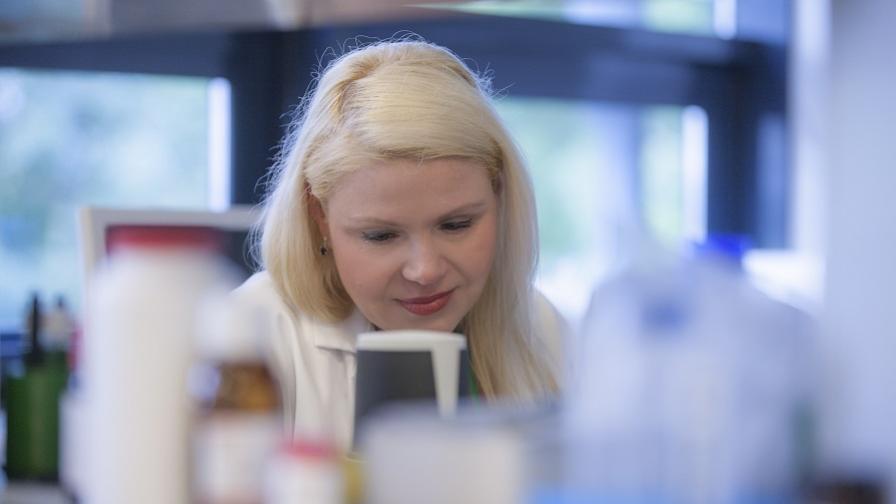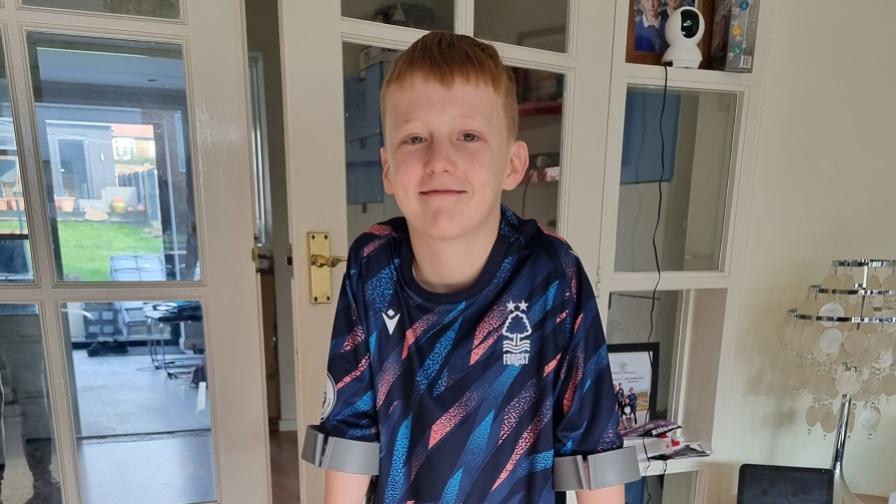
Neurofibromatosis type 2 (NF2), more recently known as NF2-related schwannomatosis, causes slow-growing tumours in different parts of the nervous system. While these are not cancerous, their locations – often on crucial nerves, the spine and around the brain – can cause significant symptoms and make them very difficult to treat.
NF2 is a genetic condition and is usually diagnosed in childhood or as a young adult. It can cause hearing loss, problems with balance and mobility, pain and paralysis. Symptoms tend to worsen over time and life-threatening complications can develop.
There is currently no cure and treatments such as surgery, where it’s possible, or radiotherapy are often only partially effective – and tumours can recur.
In 2016, Action awarded funding to Dr Sylwia Ammoun and her team at the University of Plymouth Brain Tumour Research Centre of Excellence. This was to continue work to explore the role certain virus proteins in the body played in the development of tumours linked to NF2, and to test if antiviral drugs could offer a new treatment option.
The team showed that viral proteins do contribute to the growth of NF2 tumours and, excitingly, that existing drugs, already used to treat HIV, could reduce and slow the growth of NF2 tumours in the laboratory.
“The grant from Action made all the difference," says Dr Ammoun. “It allowed us to continue the research which we believe has great potential for developing new effective treatments for NF2 patients and also for patients suffering from other types of brain tumours.”
These promising results have now helped lead to a clinical trial to test if these drugs can be repurposed to treat NF2-related tumours. This first trial involves patients over the age of 18, but if the treatment works as expected, then children and young people would be involved in future tests. “NF2 develops in childhood, so it will be of great importance to test these drugs in children,” says Dr Ammoun.
The grant from Action made all the difference. It allowed us to continue the research”
Oscar, pictured below, has neurofibromatosis type 2 and currently has 10 different tumours. A new drug treatment could be life-changing for children like him.

